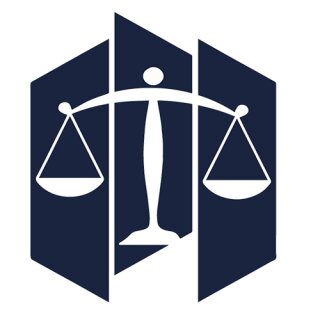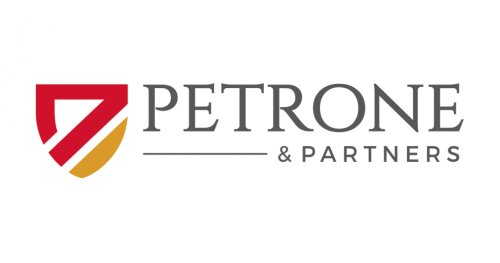Best White Collar Crime Lawyers in Canada
Share your needs with us, get contacted by law firms.
Free. Takes 2 min.
Or refine your search by selecting a city:
List of the best lawyers in Canada
About White Collar Crime Law in Canada
White collar crime refers to financially motivated, non-violent crime committed by businesses and government professionals. In Canada, these crimes often include fraud, bribery, insider trading, embezzlement, cybercrime, and various types of financial scams. The Canadian legal system treats white collar crime seriously due to the significant harm it can cause to individuals and institutions.
Why You May Need a Lawyer
If you're accused of or are a victim of white collar crime, you may require legal assistance. Common situations where you may need a lawyer include: being charged with fraud, allegations of insider trading, involvement in bribery cases, accusations of embezzlement, or issues with regulatory compliance in financial practices. A lawyer can help navigate the complexities of these charges, offer guidance, and represent your interests in legal proceedings.
Local Laws Overview
White collar crime in Canada is governed by several pieces of legislation, including the Criminal Code of Canada, the Competition Act, and the Securities Act. The Criminal Code deals with offenses like fraud and embezzlement, while the Competition Act addresses anti-competitive behavior and deceptive marketing practices. The Securities Act regulates insider trading and other securities violations. Understanding these laws is crucial for legal professionals working in the field of white collar crime.
Frequently Asked Questions
1. What constitutes white collar crime in Canada?
White collar crime includes any non-violent crime committed for financial gain, such as fraud, embezzlement, insider trading, and bribery.
2. What are the penalties for white collar crime in Canada?
Penalties vary widely depending on the severity of the crime and can include fines, restitution, imprisonment, and/or probation.
3. Can individuals and corporations be held liable?
Yes, both individuals and corporations can be held liable for white collar crimes. Corporations can face fines and sanctions, while individuals may face personal criminal charges.
4. What is the role of the Competition Bureau in Canada?
The Competition Bureau enforces laws designed to protect Canadian consumers and businesses from anti-competitive practices and deceptive marketing.
5. Are there defenses available for white collar crime charges?
Yes, defenses may include lack of intent, mistake of fact, duress, or demonstrating actions that did not constitute a breach of the relevant laws.
6. How are white collar crimes investigated in Canada?
These crimes are typically investigated by specialized units within law enforcement agencies, often with the involvement of regulatory bodies, such as the Financial Transactions and Reports Analysis Centre of Canada (FINTRAC).
7. Can I resolve white collar crime charges without a trial?
It's possible to resolve charges through plea agreements or alternative dispute resolutions, but legal advice is essential for determining the best course of action.
8. What should I do if I am a victim of white collar crime?
Contact law enforcement or regulatory bodies and consider consulting a lawyer to assess your options for civil remedies or restitution.
9. How does bankruptcy play a role in white collar crime cases?
Fraudulent activities may come to light during bankruptcy proceedings, and misrepresentations in bankruptcy filings can also constitute white collar crime.
10. Are there ethical considerations involved in white collar crime law?
Yes, lawyers practicing in this field must maintain high ethical standards to avoid conflicts of interest and preserve client confidentiality, among other duties.
Additional Resources
For more information, consider reaching out to the Canadian Bar Association, the Competition Bureau of Canada, or FINTRAC. Legal aid services and provincial law societies can also provide resources and support for individuals seeking legal advice on white collar crime matters.
Next Steps
If you suspect that you need legal assistance related to white collar crime, consider contacting a lawyer who specializes in this area. It's important to gather any relevant documentation and clearly explain your situation to ensure you receive the best legal advice possible. You can find qualified lawyers through the Canadian Bar Association's directory or by seeking recommendations from trusted sources.
Lawzana helps you find the best lawyers and law firms in Canada through a curated and pre-screened list of qualified legal professionals. Our platform offers rankings and detailed profiles of attorneys and law firms, allowing you to compare based on practice areas, including White Collar Crime, experience, and client feedback.
Each profile includes a description of the firm's areas of practice, client reviews, team members and partners, year of establishment, spoken languages, office locations, contact information, social media presence, and any published articles or resources. Most firms on our platform speak English and are experienced in both local and international legal matters.
Get a quote from top-rated law firms in Canada — quickly, securely, and without unnecessary hassle.
Disclaimer:
The information provided on this page is for general informational purposes only and does not constitute legal advice. While we strive to ensure the accuracy and relevance of the content, legal information may change over time, and interpretations of the law can vary. You should always consult with a qualified legal professional for advice specific to your situation.
We disclaim all liability for actions taken or not taken based on the content of this page. If you believe any information is incorrect or outdated, please contact us, and we will review and update it where appropriate.
Browse white collar crime law firms by city in Canada
Refine your search by selecting a city.












